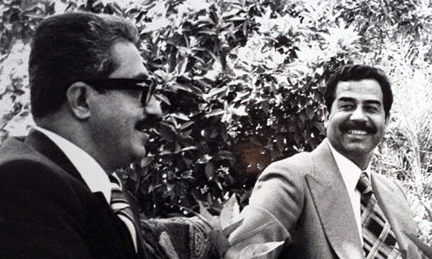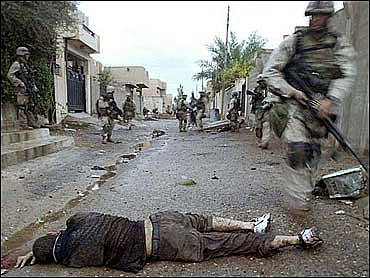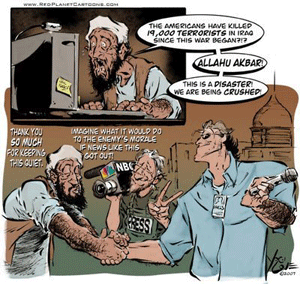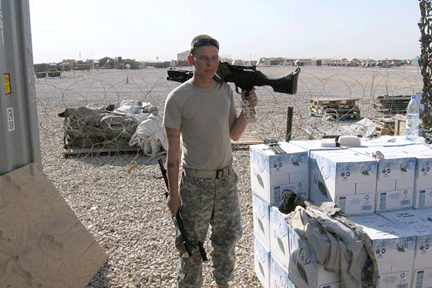
Tariq Aziz with Saddam Hussein before the fall
by Martin Chulov in Baghdad , The Guardian, August 5, 2010
Tariq Aziz is slumped on a tattered brown sofa seat cradling his walking stick and cigarettes, his gaunt face topped, incongruously for a practising Christian, by a Muslim prayer cap. It is perhaps only the familiar black-ringed spectacles that signal to the visitor that this was Iraq’s former face to the world – Saddam Hussein’s right-hand man, his most powerful deputy.
Apart from his captors and lawyers, Aziz, says he has not seen or spoken to a foreigner since the fall of Baghdad. But after years rotating between solitary confinement and a witness box in court, he is now more than ready to speak.
“It’s been seven years and four months that I have been in prison,” he told the Guardian. “But did I commit a crime against any civilian, military or religious man? The answer is no.”
Iraq has been through hell since Aziz was last seen in public, days before Baghdad fell in April 2003, toppling Hussein and the totalitarian Ba’athist regime that Aziz had helped lead for 30 years. Continue reading Tariq Aziz: ‘Britain and the US killed Iraq. I wish I was martyred’






